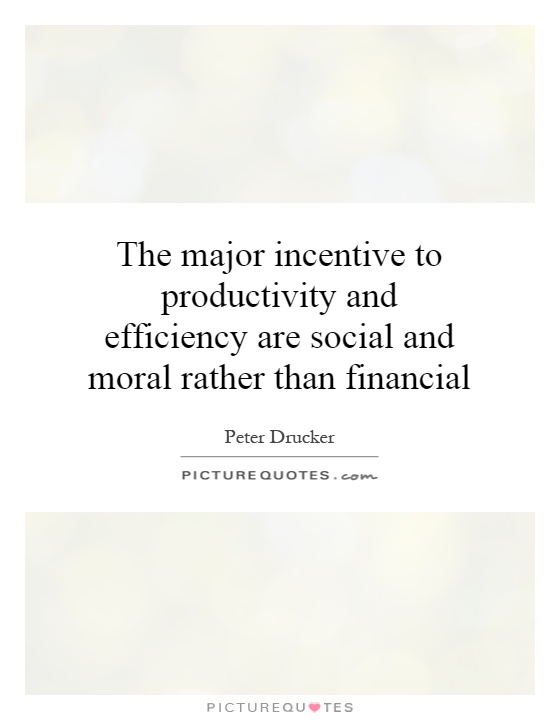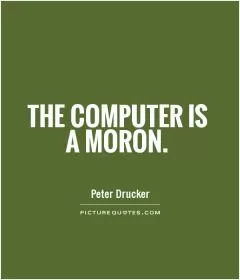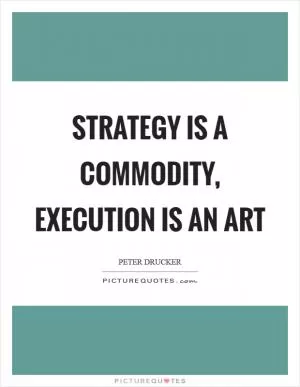The major incentive to productivity and efficiency are social and moral rather than financial

The major incentive to productivity and efficiency are social and moral rather than financial
Peter Drucker, often referred to as the father of modern management, believed that the major incentive to productivity and efficiency in the workplace are social and moral rather than financial. Drucker's philosophy on management emphasized the importance of creating a positive work environment where employees feel valued, respected, and motivated to perform at their best.Drucker argued that while financial incentives such as bonuses and raises can motivate employees in the short term, they are not sustainable in the long run. He believed that true productivity and efficiency come from a sense of purpose, belonging, and fulfillment in one's work. When employees feel connected to their work and to their colleagues, they are more likely to be engaged, motivated, and committed to achieving the organization's goals.
Drucker also emphasized the importance of ethical behavior in the workplace. He believed that a strong moral compass is essential for building trust, fostering collaboration, and creating a culture of integrity within an organization. When employees feel that their leaders are honest, fair, and ethical, they are more likely to be loyal, dedicated, and productive.












 Friendship Quotes
Friendship Quotes Love Quotes
Love Quotes Life Quotes
Life Quotes Funny Quotes
Funny Quotes Motivational Quotes
Motivational Quotes Inspirational Quotes
Inspirational Quotes